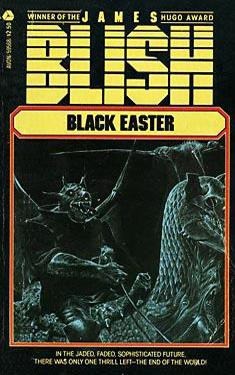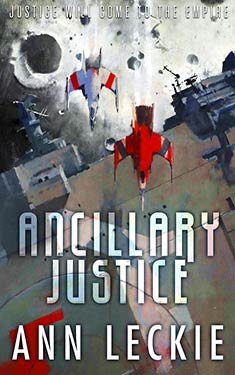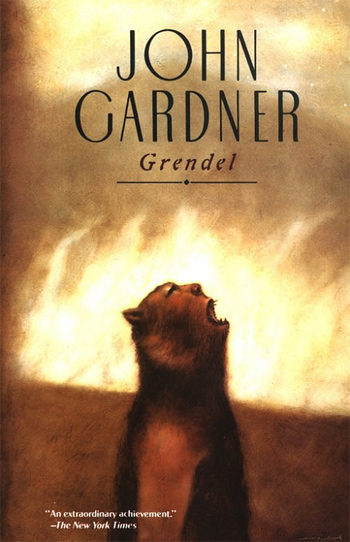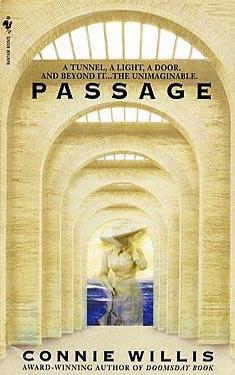James Blish
Completed 3/10/2014, Reviewed 3/24/2014
4 stars
Once again I am writing one review for two different
books. I picked up “Black Easter”
because I like genre fiction that deals in some way with religion. It’s a very short book, and it was actually
my first read after my Hugo challenge. When
I finished the mere 165 page book, I got angry!
I couldn’t believe it was done. I
couldn’t believe this was a novel. It
was more like an overlong short story, low on plot, high on mood and
description. I felt like Blish just barely
qualified for the novel category, which means a story of 40,000 words or more,
by writing 40,001! So I busied myself
with a little research and found there was a sequel, “The Day After Judgement”. Meh! I
thought I’d better wait and get the sequel before writing a review. And I’m here to tell you, it was worth it. Instead of an unsatisfying read, the
combination of the two books turned into one awesome experience.
Please be aware that to review both books, I basically give
away the ending of the first, although I won’t be too specific.
 In “Black Easter”, the time is the cold war, and magic is
viewed, studied, and practiced as a science.
Black magic is available to the general public by black magicians for a
high price. White magic is practiced by
an order of priests and these days, it is mostly used for finding treasure.
Baines, a powerful arms manufacturing mogul and scientist, seeks out black
magician Theron Ware for an infernal task.
He wants Ware to unleash all the demons of Hell on the world for one day
to see what would happen. But before
paying the magician, Baines asks him to do two smaller tasks: cause the deaths
of a politician and a rival scientist.
Easily succeeding, Ware begins prepping for the great conjuring.
In “Black Easter”, the time is the cold war, and magic is
viewed, studied, and practiced as a science.
Black magic is available to the general public by black magicians for a
high price. White magic is practiced by
an order of priests and these days, it is mostly used for finding treasure.
Baines, a powerful arms manufacturing mogul and scientist, seeks out black
magician Theron Ware for an infernal task.
He wants Ware to unleash all the demons of Hell on the world for one day
to see what would happen. But before
paying the magician, Baines asks him to do two smaller tasks: cause the deaths
of a politician and a rival scientist.
Easily succeeding, Ware begins prepping for the great conjuring.
Because of a strange covenant, Father Domenico, a white
magician priest who has forseen an impending catastrophe, is allowed to witness
though not interfere with the Ware’s ritual.
Together with Bain’s assistant Jack Ginsberg, and another scientist from
Baine’s company, they conjure the demons, and, well, all Hell breaks
loose.
“The Day After Judgement” follows the men after the chaos of
the ritual. We also get to see the
perspective of the US military trying to make sense of the supernatural
events. A strange city has appeared in
the middle of Death Valley, and its inhabitants are surprisingly demonic. Our main characters make the trek through the
“valley of the shadow of death” to try to figure out what to do next.
Taken as a whole, I loved these books. It’s the type of early apocalyptic and
religious-themed SF literature I enjoy and got a taste of with Blish’s Hugo winning
“A Case of Conscience”. In fact, the story in these two books, with “Case” and
another story, “Dr. Mirabilis”, make up a thematic trilogy Blish called “After
Such Knowledge”. So of course, now, I have to get the third.
I really like Blish’s prose.
As I said in the beginning, the first book is low on plot, high on mood
and description. From the opening pages,
the evil looms. The story has a very pragmatic
tone, which acts as a counterpoint to the fact that we’re talking about magic
in the modern age. Nothing frilly,
nothing woo-woo, just serious dark foreboding.
As is common with earlier SF, there is the typical problem
of almost no women in the story. Here,
the only woman appears to be a succubus.
It was probably even more noticeable than usual, because I had read
“Ancillary Justice”, where all the references to people are female nouns and
pronouns, between the two volumes. Even
though I really enjoy older, classic SF, I always forget that books like these
are often devoid of substantial female characters and have to remind myself
that they were written in a very different time.
Aside from my angry surprise at the end of the first book, I
thought these books were great. This is
the type of four star classic SF that I love discovering in the stacks of worn
paperbacks in libraries and used bookstores.


